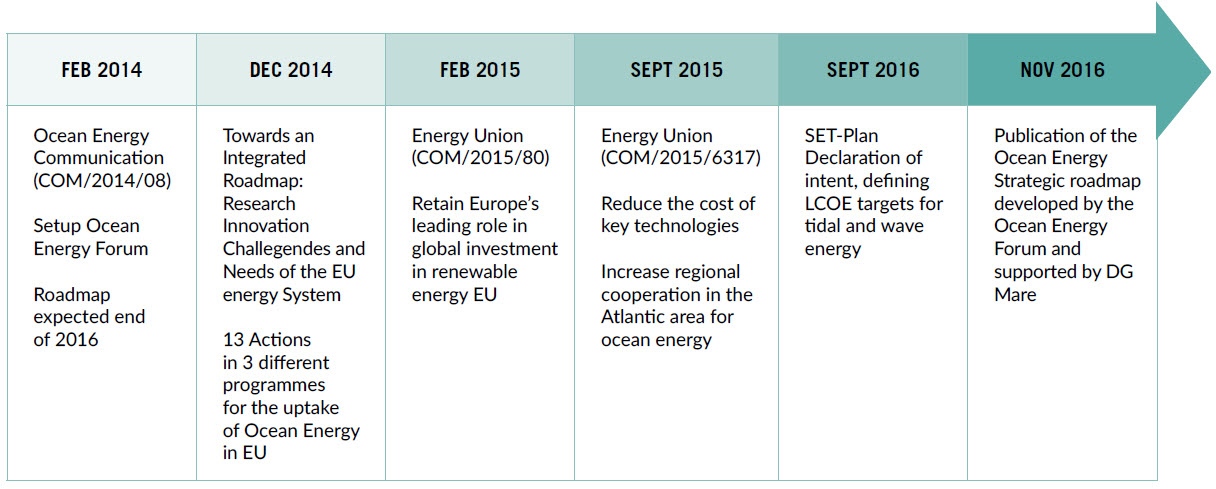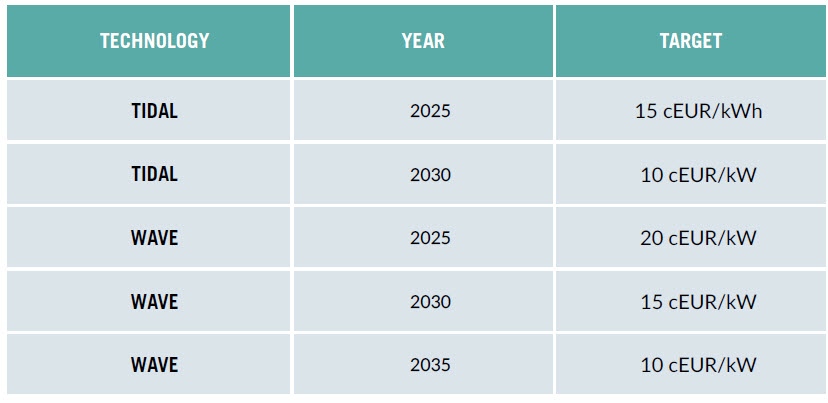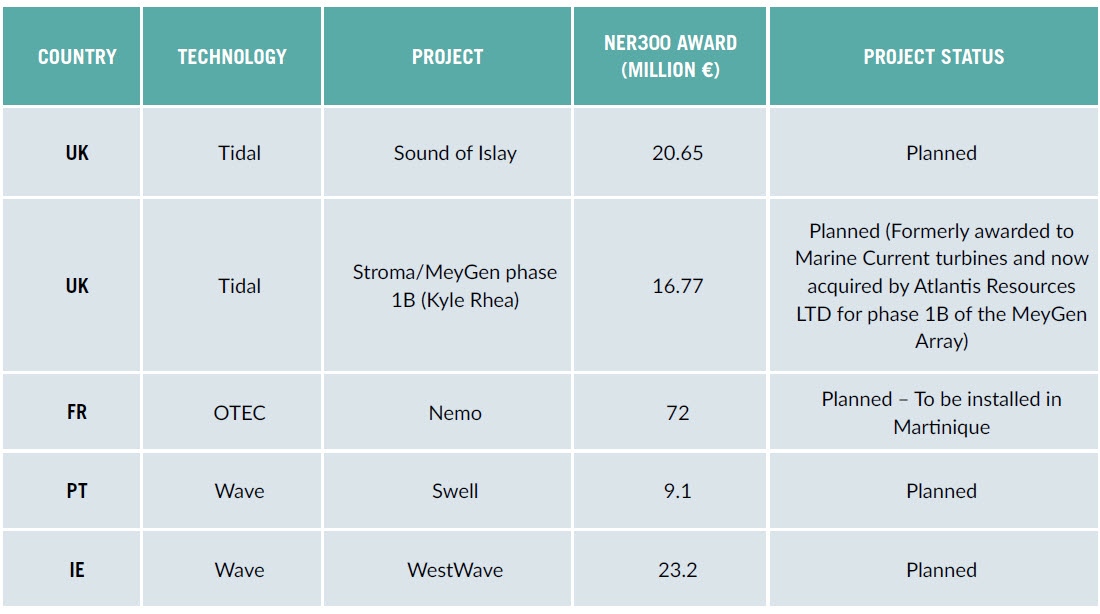EUROPEAN COMMISSION
SUPPORTING POLICIES FOR OCEAN ENERGY
NATIONAL STRATEGY
The development of ocean energy at European level has been addressed by a number of recent policy initiatives, following the launch of the Ocean Energy communication in 2014 (COM/2014/08) and the subsequent establishment of the Ocean Energy Forum. Currently, the main policy drivers for the development of ocean energy technologies are the Energy Union Package and the implementation of the Strategic Energy Technology Plan (SET-Plan).

EU policy initiatives directed to the development of ocean energy technology
The Energy Union package (COM/2015/80) sets out the five overarching dimensions for an integrated and sustainable European energy system. The integrated SET-Plan (COM/2015/6317) supports the Energy Union package with the provision of a new approach to Research & Innovation (R&I), designed to accelerate the transformation of the European energy system through the development and deployment of low-carbon energy technologies. 10 actions for the transformation of the European energy system are included in the SET-Plan, and the development of ocean energy is expected to contribute to the followings:
- Sustaining technological leadership by developing highly performant renewable technologies and their integration in the EU’s energy system;
- Reducing the cost of key technologies.
Following a two-year period of discussion, in September 2016, the European Commission and stakeholders have agreed to ambitious targets for the development of ocean energy in Europe. The targets, presented in the “SET Plan – Declaration of Intent on Strategic Targets in the context of an Initiative for Global Leadership in Ocean Energy” [European Commission 2016], aim to ensure that Europe maintains its leadership in the sector and to identify in a coordinated manner avenues to achieve these targets (Table 1).

Table 1 LCOE Targets for Wave and Tidal technology presented in the SET-Plan declaration of intent.
The current policy framework at EU is trying to provide technology developers with the required stability and commitment to bring ocean energy technology to the market. The implementation of the SET-Plan foresees the creation of a working group on Ocean Energy to identify viable actions for the development of the technology in line with the targets set. The newly formed European Technology and Innovation Platform on Ocean Energy (ETIP Ocean) is in fact doing this. It developed a more detailed Strategic Research Agenda for Ocean Energy [ETIPOcean 2016], will continue the dialogue in between all stakeholders, and will take up the implementation of the SET Plan actions. The scope of the ETIP covers the whole innovation chain as well as bringing technologies to the market by for instance identifying innovation bottlenecks.
Further scope for the development of ocean energy is provided by the Smart Specialisation Platform on Energy (S3PEnergy;http://s3platform.jrc.ec.europa.eu/s3p-energy). The S3PEnergy initiative is designed to harmonise the regional effort in the development of ocean energy. It facilitates collaboration by matching research and innovation strengths with business needs; with the aim to identified address emerging opportunities and market developments in a coherent manner.
A regional partnership for regional collaboration on ocean energy was established in 2016 under the S3P umbrella, with a number of key European regions already participating in the initiative. The development of Ocean Energy is supported by the European Commission through different mechanisms, ranging from R&D projects and market incentives.
MARKET INCENTIVES
To support the development of innovative low-carbon technologies the European Commission has created a number of instruments aimed at reducing the gap between R&D and commercialisation. The NER300 programme is designed to support first-of-a-kind, commercial-scale renewable energy projects. Five Ocean Energy projects have been awarded from NER300: two tidal projects to take place in the UK (Scotland), two wave energy projects based in Ireland and Portugal and one OTEC project to be installed in Martinique. Details are as presented in Table 2.

Table 2 Pre-commercial projects awarded support through NER300
PUBLIC FUNDING PROGRAMS
Further incentives are provided by the EU in the form of loans for first-of-a kind projects, through the pilot InnovFin Energy Demo Projects (EDP) scheme in collaboration with the European Investment Bank (Table 3). The scheme was design to reduce the risk for demonstration projects, for which the supply of the supply of equity and debt is at much lower levels than the financing of proven low carbon technologies. The InnoFin EDP scheme is a new public sector funding mechanism designed to fill the commercialisation, ‘Valley of Death’, funding gap.

Table 3 Projects supported by EIB InnovFin Energy Demo



